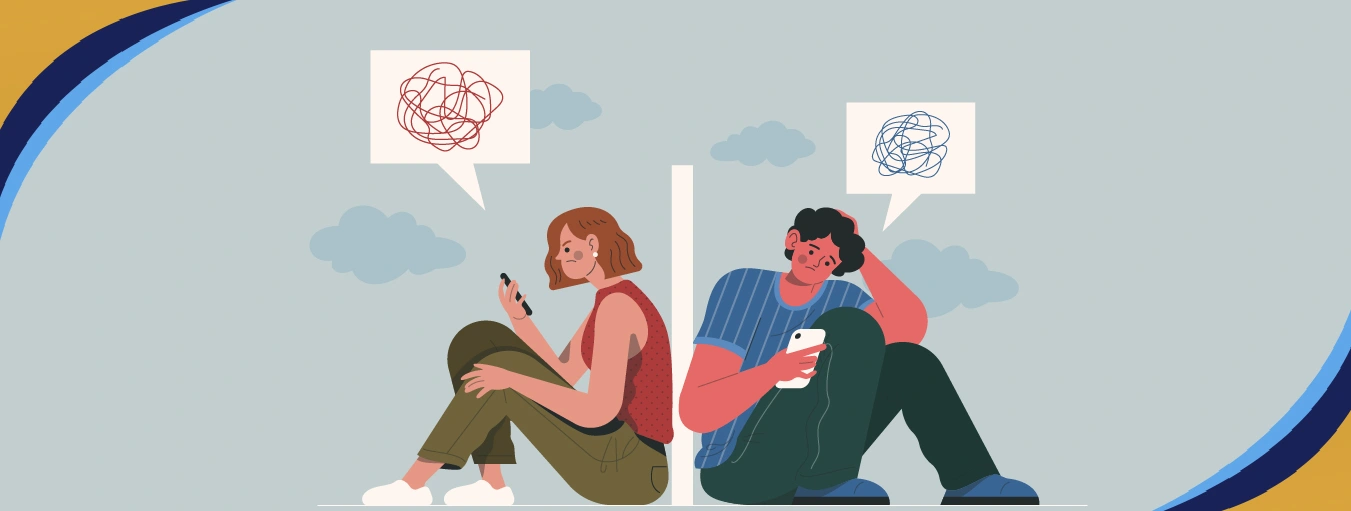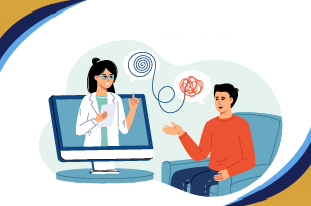Are you a new mother and have been having a lot of anxiety lately? Then it is probably the case that you are suffering from postpartum anxiety disorder. Before you go into another panic attack, why not read through the lines below as you may find something beneficial, something that ultimately will help you cope with postpartum panic attacks? Let’s read on:
Before We Learn About Postpartum Anxiety Disorder…
We should talk about anxiety and panic attacks separately as there are sort of levels to these things and there is also the nature of difficulty of changes as one gets deeper into these mental issues, all relating to anxiety.
Anxiety
It is the product of a fight or flight response that is the result of parts of the brain called the amygdala and hypothalamus. It is there to help us make aware of an impending danger, so we can run or fight when the danger finally arrives. From an evolutionary point of view, it made a lot of sense but in the modern world and in our urban lifestyles we are not hunter-gatherers anymore, so there are not any urgent dangers in existence anymore like it used to be say, for example, we are not hunted by animals anymore because we lay now on top of the food chain.
This means that through modern fears, for example, we can feel a lot of anxiety about our relationships even though these developments do not pose any present danger (other than heartbreak, which is harmless in the long run). It’s essentially irrational. We promise you that it relates to postpartum anxiety disorder but before we have to discuss panic attacks first.
Read More: Can Anxiety Cause Dizziness? A Complete Understanding Of The Link
Panic Attacks
These are sudden and intense feelings of fear that stem from excessive anxiety and intrusive thoughts. Panic attacks mimic the symptoms of a heart attack such as a racing heart rate, heavy breathing, and sweating. Panic attacks are a common occurrence in anxiety disorders such as PTSD, and you guessed it right, postpartum anxiety disorder. OCD attacks are also similar in nature but tend to come when compulsions are not met. Going back, postpartum panic attacks are also a thing and we discuss exactly that in the next section.
Read More: Is Panic Disorder a Disability?
What is Postpartum Panic Episode (or Anxiety Disorder)?
Postpartum panic attacks or episodes are a type of anxiety-induced panic attacks that take place in the affected women after having a baby or becoming a parent (the postpartum period), especially for the first time. While it is natural to feel stressed or anxious when a baby has arrived in the household, it can also be irrational and can lead to excessive worry that something is going to happen to the baby even if it seems highly unlikely. Panic attacks while pregnant is not the correct description of

This type of anxiety can be generalized or can be even specific, especially when it relates to a particular event. Other times it can be ambiguous where you cannot pinpoint any cause other than the fact there is just a sudden burst of fear and excessive worry that relates to the newborn.
Read More: Generalized anxiety vs panic disorder: A Closer Look
The Commonality of a Panic Attack in Postpartum
Studies suggest that 11% to 21% of women who become new moms are affected with postpartum anxiety disorder. While no proper tools exist to diagnose postpartum panic attacks, it is usually diagnosed alongside another postpartum mental issue postpartum depression, of which researchers know more about through the extensive research done on it.
The Difference Between Postpartum Anxiety Disorder and Postpartum Depression
When a woman becomes a new mom, her brain goes through a lot of changes, which sometimes can contribute to different types of illnesses (sometimes permanent and sometimes temporary). Two of these mental issues are postpartum anxiety disorder and postpartum depression.
Though a panic attack in the postpartum phase can happen as much as postpartum depression is common in new mothers, there are slight differences! Postpartum depression is all about experiencing excessive sadness, frequent crying or feeling like you can’t take care of yourself, or your baby, postpartum anxiety disorder is more associated with excessive worrying, and not with sadness.
Many of the postpartum panic’s symptoms overlap with postpartum depression such as excessive or disrupted sleep, heart palpitations, or feeling afraid. It’s also common for people with postpartum depression to experience signs of postpartum anxiety.
Read More: Major Depressive Disorder In Children: A Guide For Parents
Postpartum Anxiety Disorder Symptoms
To correctly identify if you have postpartum anxiety disorder, you need to check if you have 2 or more of these symptoms even though you may not feel these symptoms within the first few days after childbirth, these will erupt sooner or later:
- Cognitive problems such as difficulty concentrating and remembering things
- Trouble fulfilling tasks fully and properly
- Being easily distracted
- Indecisiveness
- Unwanted or intrusive thoughts related to parenting or your child
- Insomnia and fatigue as you are unable to relax
- Loss of appetite, which can often lead to eating disorder
- Dread and feeling of unease for extended periods of time
- Overwhelming and excessive anxiety, worry, and fear
- Agitation and irritability. Anger management would be needed for this
- Avoiding things out of fear or worry that something bad will happen
- Agoraphobia, which is fear of being in open and public spaces, often leads to social anxiety disorder
- Suicidal ideation and tries
- Panic attacks
Treating Panic Attacks in the Postpartum Phase
Panic attacks in the postpartum phase are highly treatable. There are different types of treatment options available such as medication management and psychotherapy. Let’s read about them:
Read More: Is Social Anxiety Disorder A Disability?
Medication management
Postpartum anxiety disorder is treatable with medication such as anti-anxiety medication such as benzodiazepines. But ensure that you follow the prescribed methods of an expert, which can be done via a service like medication management.
Psychotherapy
Anxiety and the symptoms of postpartum anxiety disorder through psychotherapy, which is essentially a talk therapy that can treat problems like a mood disorder. It is where you talk to a doctor or a licensed mental health care professional to identify and find resolutions for your troubling thoughts. It can be used in unison with medication management for a better outcome.
Lifestyle changes
Changes can be made to your lifestyle to induce decreased anxiety via techniques such as muscle relaxation exercises, reaching out to a support system, ensuring self-care, etc.
Read More: Can Anxiety Disorder Cause High Blood Pressure? Insights About The Connection
Conclusion
This is the end here and we have talked a lot about postpartum anxiety disorder. We know that you have understood each and every content prescribed in the words here. But if you are looking for treatment options such as the ones mentioned above for treating a panic attack in the postpartum phase or for something else such as bipolar disorder then you can book an appointment with Orange Coast Psychiatry, from today onward.
























